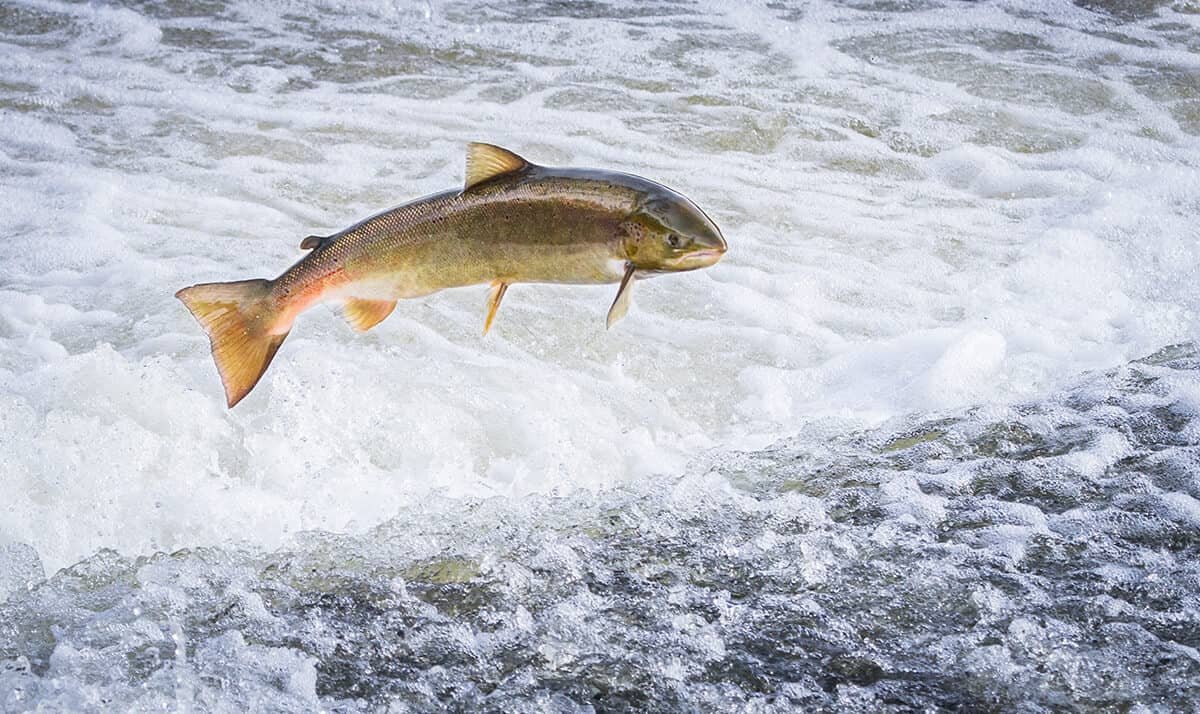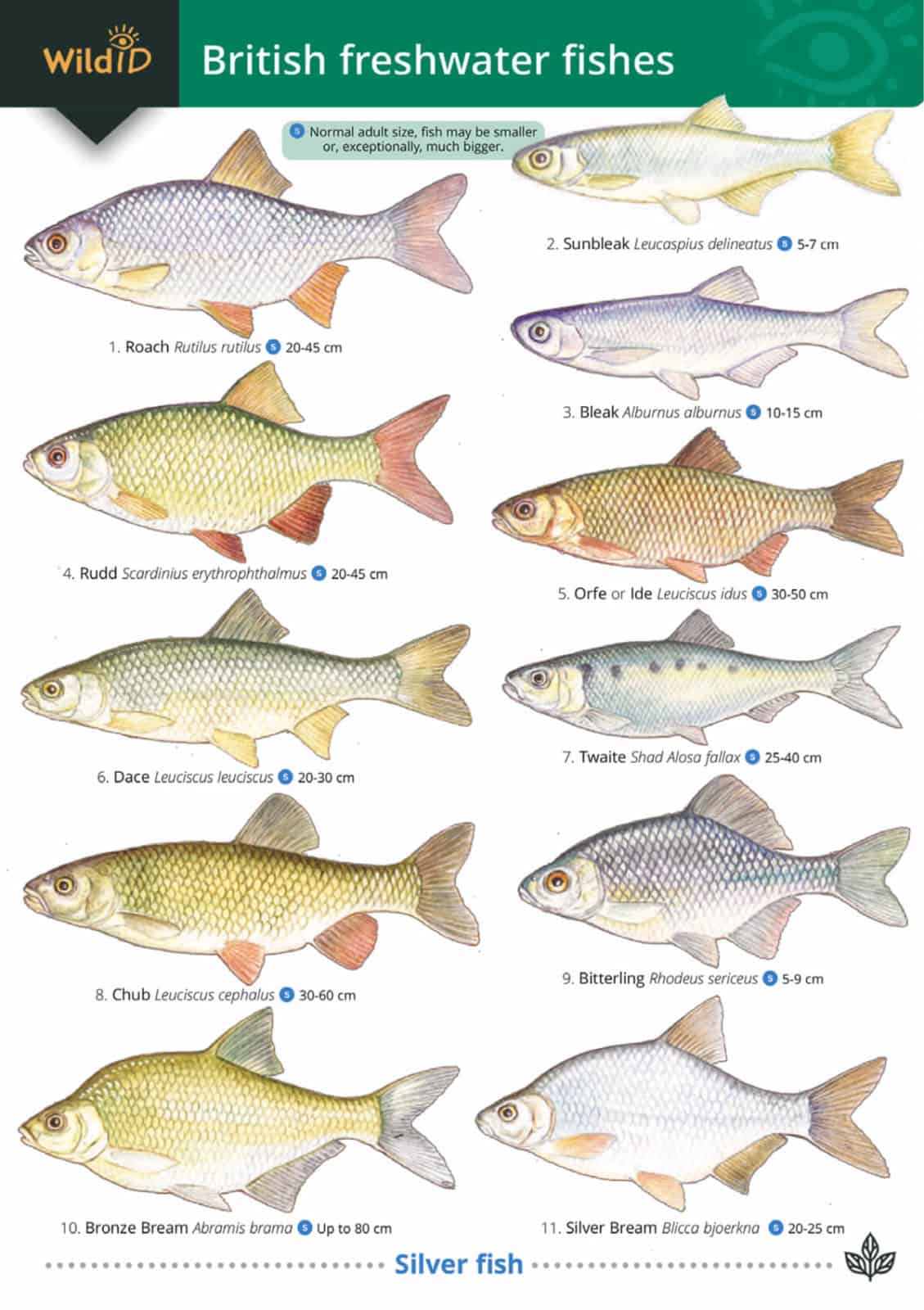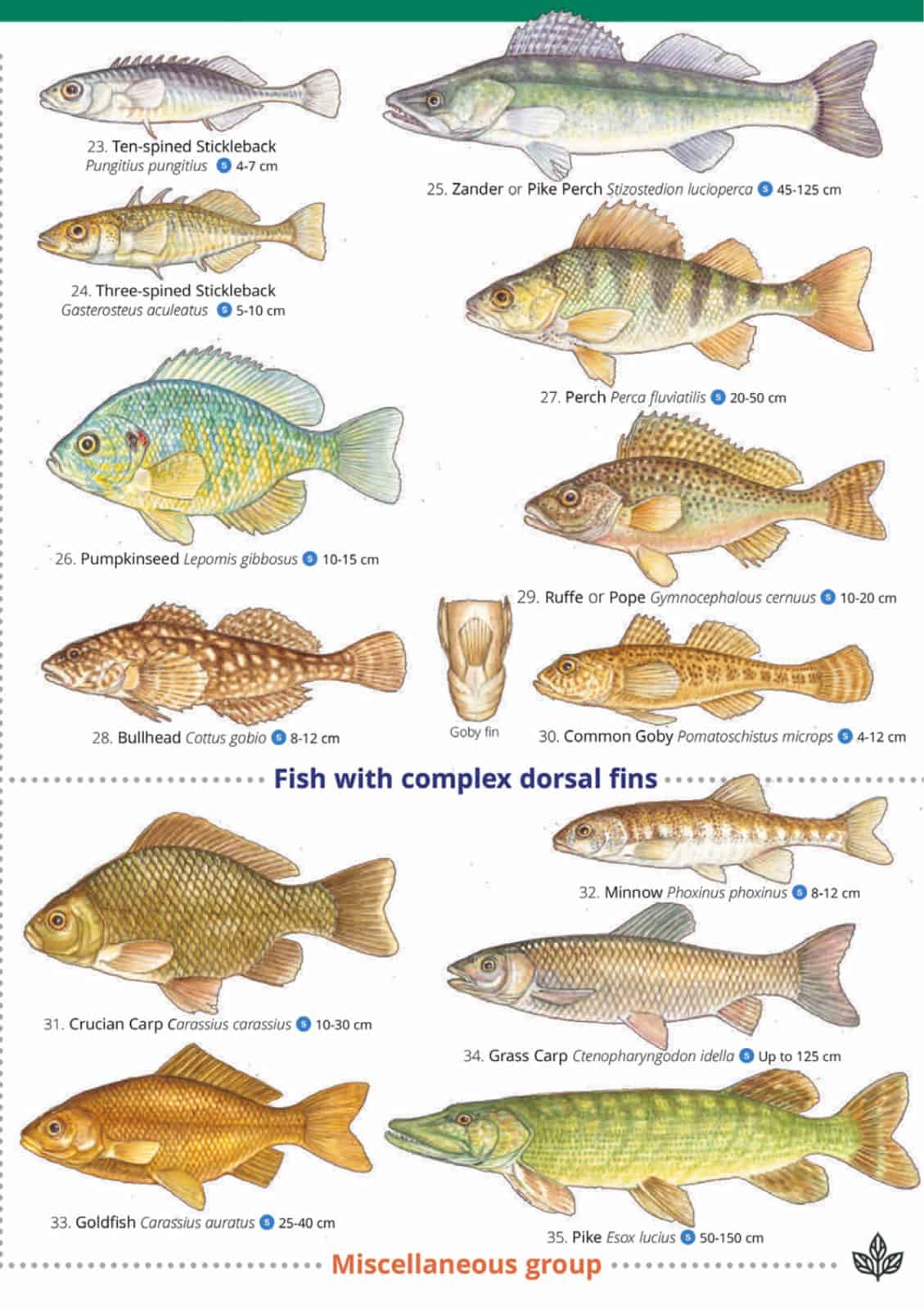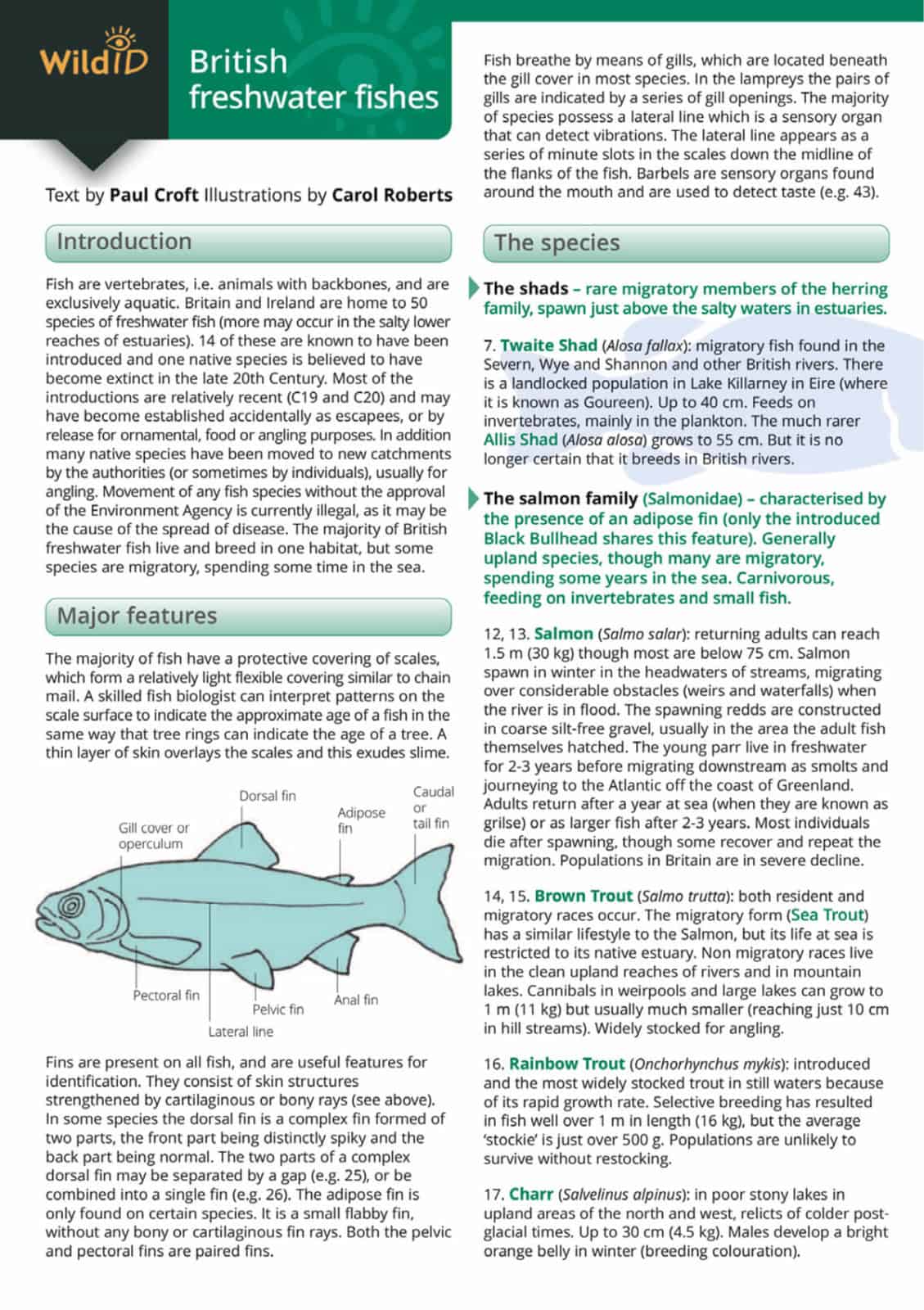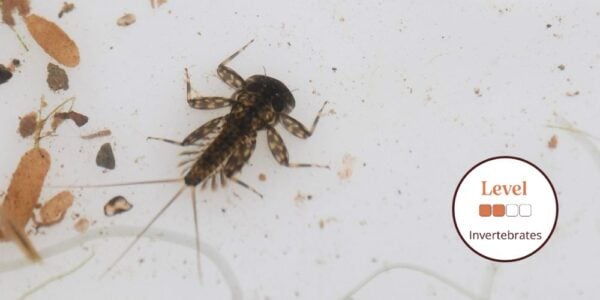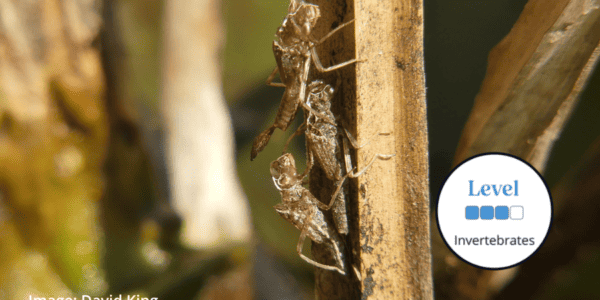Fish guide
The FSC Fish guide covers all the freshwater fish of ponds, streams and rivers in Britain and Ireland.
The colour illustrations are arranged so that similar looking species are grouped together. Accompanying text contains further information on each species in the text, including size, habitat and key identification characters.
The guide divides fish into several easily distinguished groups. Firstly silver fish, like roach, rudd, chub, bleak and dace. Secondly the fish with adipose fins, like salmon, trout, charr and grayling. Thirdly fish with complex fins, like sticklebacks, perch and zander. Fourthly fish with barbels, like tench, gudgeon and carp. Fifthly long snake-like fish, like eels, lampreys and wels. And finally a miscellaneous group that don’t fit anywhere else, including pike, minnow and goldfish. It’s possible to identify many fish from outside the water; there is no need to catch them.
Fish are vertebrates, i.e. animals with backbones. They are exclusively aquatic. Fins are present on all fish, and are useful features for identification. They consist of skin structures strengthened by cartilaginous or bony rays.
The streams, rivers, ponds, lakes and canals of Britain and Ireland are home to 50 species of freshwater fish. Further species occur in the lower reaches of estuaries. Most British and Irish freshwater fish live and breed in one habitat. But some species are migratory, spending part of their life cycle in the sea. Of these species, 14 are introductions. One native species became extinct in the late 20th Century. Most of the introductions are relatively recent, either accidentally as escapees, or by release for ornament, food or angling.
Our popular British Freshwater Fishes field guide measures 24.5cmx17.5cm and is extremely lightweight and compact, and the perfect freshwater fish identification chart for popping in your bag when heading to the outside. All wildlife identification guides are laminated, meaning they are showerproof for use outside. and can be wiped clean.

